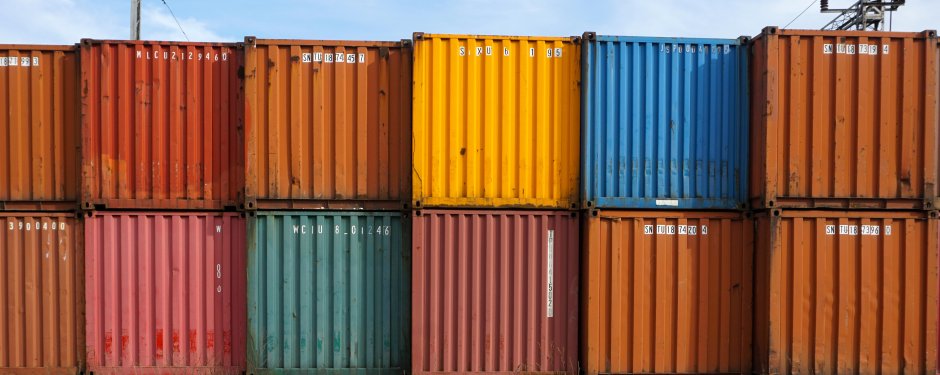The notion of ‘similar goods’ and the impact of discounts in applying the deductive method of customs valuation

On June 20, 2019, the Court of Justice of the European Union (CJEU) rendered its judgment in the Oribalt Rīga (C-1/18) case on the factors relevant to calculating the customs value in accordance with the deductive method of Article 30(2)(b) of the Community Customs Code (CCC), in the special context of the customs valuation of imported medicines. The application of the deductive method is not an easy task. However, the CJEU ruling clarified the notion of ‘similar goods’ and the impact of discounts on the price when applying the deductive method of customs valuation.
Case
Oribalt Rīga (Oribalt) and the Indian company Ranbaxy Laboratories (Ranbaxy) entered into a consignment agreement. Under the consignment agreement, Oribalt imported goods (medicines) into Latvia for free circulation in the Union. In the customs declaration, Oribalt stated that it was both the recipient and the declarant.
It calculated the customs value of the medicines using the transaction value method of Article 29(1) CCC, by means of pro forma invoices prepared by Ranbaxy for customs purposes. The pro forma invoices indicated the type of imported goods, the item, the unit market price and the total price.
The medicines were held in storage by Oribalt but ownership did not change until they were sold to customers. Ranbaxy determined to whom the imported goods were sold, the terms of sale, the sales price and the discounts applicable.
Oribalt processed the orders from Ranbaxy’s customers and completed the invoices using the product sales price provided by Ranbaxy Laboratories in an authorized pro forma order.
The medicines were sold on a First Expired First Out basis (FEFO) so that several months could elapse between the import and the sale of the goods. Consequently, the sales value of medicines at the time of sale could differ from their declared value at the time of import. The actual sales price of the goods was also affected by the discounts which Ranbaxy granted to customers. Once the goods had been sold, Ranbaxy issued Oribalt with new invoices for the goods sold.
An inspection by the Latvian customs authorities ('the VID') ultimately led to questions about the deductive method of customs valuation being referred to the CJEU.
Similar goods
The first question addressed to the CJEU concerns which factors are to be taken into account when choosing appropriate ‘similar goods’ in applying the deductive method of customs valuation laid down in Article 30(2)(b) CCC to medicines. This question is of central importance for the case as the VID argues that the imported goods could not be valued on the basis of deductive method since the VID lack the necessary knowledge and information to assess whether medicines produced by other sellers are in fact similar to the goods produced by Ranbaxy.
The CJEU points out that the definition of ‘similar goods’ is broad and is based on a factual assessment that allows for a broad application to all types of goods, including the medicines concerned. In order to identify the similar goods, the customs authorities must use all data available to determine the customs value as accurately and faithfully as possible. According to the CJEU, the composition of the medicines, the substitutability of their functions and the commercially interchangeability are among the factors to be considered in determining whether goods are similar. For the purposes of the factual assessment, account must be taken of all the elements of such goods that may affect their economic value, such as the market position of the imported goods and of its producer.
The time limit of 90 days
The second question referred to the CJEU was whether the time limit of 90 days as a reference period for similar goods, as stated in Article 152(1) of the Implementing Regulation, may be applied flexibly so as to take account of ‘more similar’ goods imported beyond a period of 90 days.
The CJEU, following AG Wahl’s Opinion, states that the time limit of 90 days referred to in Article 152(1)(b) is an exception to the principle that the customs value reflects the real economic value of the goods at or about the time the goods valued enter the Union. For this reason the period of 90 days represents a strict limit when the customs value is determined using the deductive method.
Discounts
Lastly, the CJEU was asked to rule on the question whether the discounts granted, which determined the price at which the imported goods were in fact sold, are to be taken into account when determining the customs value in accordance with Article 30(2)(c) CCC.
The CJEU answered in the negative and held that commercial discounts cannot be taken into account when the customs value is determined using the deductive method. The CJEU took into consideration, inter alia, the fact that if commercial discounts would be taken into account this would lead to a customs value that will be further removed from the real economic value of the imported goods being valued.
The CCC has now been replaced by the Union Customs Code (UCC). The rules governing the deductive valuation method are still in place and are nearly identical in wording to the former legislation.
Should you require further information on the impact of this case for your company, please do not hesitate to reach out to your contact at Meijburg & Co.